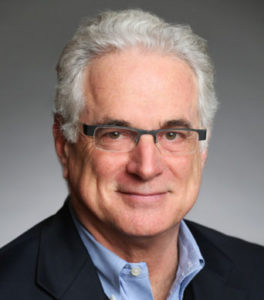EP 581 Is the American Dream Something We All Can Still Imagine?
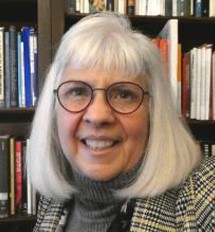 When we have dreams about what our future may hold for us, is there anything that limits the possibilities we imagine for ourselves? In this country, the American Dream holds out the promise of limitless choices for all. However, Janet Ruane and Karen Cerulo, our guests on this podcast, two sociologists and co-authors of ‘Dreams of a Lifetime’, have studied our conscious dreams, not those we have when we are are not awake, and they find that our imaginings are patterned in very specific ways and that our social circumstances affect the seemingly private and unique lives wrapped up in the stories we tell ourselves about what may await us if we have good fortune. Dreams differed depending on the person’s social class, racial group and gender. Age, too, was a major distinguishing characteristic. Dreams change throughout the years. It’s a whole new way about thinking about our mobility in our society. If you dare to dream, we are told, the journey holds great potential. Of course the flip side is what if you have difficulty thinking you deserve all that this life has to offer? We contemplate all of this on the podcast.
When we have dreams about what our future may hold for us, is there anything that limits the possibilities we imagine for ourselves? In this country, the American Dream holds out the promise of limitless choices for all. However, Janet Ruane and Karen Cerulo, our guests on this podcast, two sociologists and co-authors of ‘Dreams of a Lifetime’, have studied our conscious dreams, not those we have when we are are not awake, and they find that our imaginings are patterned in very specific ways and that our social circumstances affect the seemingly private and unique lives wrapped up in the stories we tell ourselves about what may await us if we have good fortune. Dreams differed depending on the person’s social class, racial group and gender. Age, too, was a major distinguishing characteristic. Dreams change throughout the years. It’s a whole new way about thinking about our mobility in our society. If you dare to dream, we are told, the journey holds great potential. Of course the flip side is what if you have difficulty thinking you deserve all that this life has to offer? We contemplate all of this on the podcast.
Podcast: Play in new window | Download
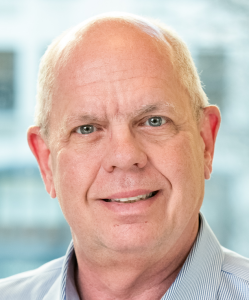 The Surgeon General of the United States, Dr. Vivek Murthy, has issued a new Advisory highlighting the urgent need to address the health worker burnout crisis across the country. Health workers, physicians, nurses, community and public health workers and others have faced systemic challenges in the health care system even before the COVID-19 pandemic, leading to crisis levels of burnout. Dr. Joe Parks, a psychiatrist and medical director, National Council for Mental Wellbeing, joins us to discuss this issue and many others affecting the mental health of all Americans, including a recent study by the National Council depicting the inadequate mental health services available to many Americans across the country. It’s a wide ranging discussion which includes the impact of the renewed focus on mental health included in the new gun safety legislation.
The Surgeon General of the United States, Dr. Vivek Murthy, has issued a new Advisory highlighting the urgent need to address the health worker burnout crisis across the country. Health workers, physicians, nurses, community and public health workers and others have faced systemic challenges in the health care system even before the COVID-19 pandemic, leading to crisis levels of burnout. Dr. Joe Parks, a psychiatrist and medical director, National Council for Mental Wellbeing, joins us to discuss this issue and many others affecting the mental health of all Americans, including a recent study by the National Council depicting the inadequate mental health services available to many Americans across the country. It’s a wide ranging discussion which includes the impact of the renewed focus on mental health included in the new gun safety legislation.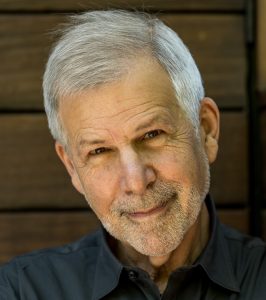 There have been two periods in American history when the Democratic Party was dominant for an extended time frame. One was the Age of Andrew Jackson, which began in 1828 and ended on the eve of the Civil War, and the other the Age of Roosevelt which began in 1932 and ended in the early 1970’s. Even the successes Democrats have had since the Age of Roosevelt, including the presidencies of Jimmy Carter, Bill Clinton, Barack Obama and now Joe Biden, has found the party in a stalemate with the Republican Party as the country turns to one or the other in rapid succession. According to our guest, Michael Kazin, of Georgetown University and author of ‘What It Took To Win: A History of the Democratic Party’, Democrats only win, with effect, when they embrace a form of moral capitalism which includes an economic message that lifts an interracial coalition of working- class people. That coalition has been harder to assemble since the Democratic Party, throwing off its racist past, truly embraced civil rights and lost many working- class whites, particularly in the South. As the oldest party in the history of democracy, the Democrats keep changing and look for new coalitions to embrace their more progressive policies. Will it work going forward? We discuss today on this podcast.
There have been two periods in American history when the Democratic Party was dominant for an extended time frame. One was the Age of Andrew Jackson, which began in 1828 and ended on the eve of the Civil War, and the other the Age of Roosevelt which began in 1932 and ended in the early 1970’s. Even the successes Democrats have had since the Age of Roosevelt, including the presidencies of Jimmy Carter, Bill Clinton, Barack Obama and now Joe Biden, has found the party in a stalemate with the Republican Party as the country turns to one or the other in rapid succession. According to our guest, Michael Kazin, of Georgetown University and author of ‘What It Took To Win: A History of the Democratic Party’, Democrats only win, with effect, when they embrace a form of moral capitalism which includes an economic message that lifts an interracial coalition of working- class people. That coalition has been harder to assemble since the Democratic Party, throwing off its racist past, truly embraced civil rights and lost many working- class whites, particularly in the South. As the oldest party in the history of democracy, the Democrats keep changing and look for new coalitions to embrace their more progressive policies. Will it work going forward? We discuss today on this podcast. Let’s be honest, we all have biases. Often times they seep in unconsciously given the society into which we are born. The role of men and women, for instance, is societally reinforced by a host of cues, behaviors and modeling. Bias affects the individual who has to overcome someone else’s sense of who they are based upon the weight, height, skin color, gender or other factor irrespective of their unique qualities. While it can rob an individual of opportunity, it also can deny fields of talent, companies of ideas and cultures of progress by not recognizing the gifts a person can bring. Diversity training is the default mechanism for trying to help people unpack their prejudices, but it is in no way sufficient for the task of undoing unconscious bias. Jessica Nordell, author of “The End of Bias”, has been studying bias and its many manifestations for years and reminds us that there is a lot of work to be done and more creative approaches to the problem are being unlocked. The first element is accepting that biases of one kind or another reside in each of us.
Let’s be honest, we all have biases. Often times they seep in unconsciously given the society into which we are born. The role of men and women, for instance, is societally reinforced by a host of cues, behaviors and modeling. Bias affects the individual who has to overcome someone else’s sense of who they are based upon the weight, height, skin color, gender or other factor irrespective of their unique qualities. While it can rob an individual of opportunity, it also can deny fields of talent, companies of ideas and cultures of progress by not recognizing the gifts a person can bring. Diversity training is the default mechanism for trying to help people unpack their prejudices, but it is in no way sufficient for the task of undoing unconscious bias. Jessica Nordell, author of “The End of Bias”, has been studying bias and its many manifestations for years and reminds us that there is a lot of work to be done and more creative approaches to the problem are being unlocked. The first element is accepting that biases of one kind or another reside in each of us. Not long ago, the technology industry was seen as a tonic for freedom and democracy. Not anymore. Every day, we see headlines blaze with reports of racist algorithms, data leaks and social media platforms fostering lies and hatred. Our guest, Jamie Susskind, has been called ‘one of the foremost thinkers on the transformative impact of the technology revolution’ by former British Prime Minister Tony Blair. His new book, “The Digital Republic” offers a roadmap as to what must be done to insure that the technologists who create these platforms and applications are held accountable for its impacts. That can be done with smart regulation which will turn this force from one driven by market individualism to one based on what he calls ‘digital republicanism’. He gives us a clear roadmap in the book and the discussion as to what we must do harness the industry for protection of the consumer, not the industry, as is currently the case.
Not long ago, the technology industry was seen as a tonic for freedom and democracy. Not anymore. Every day, we see headlines blaze with reports of racist algorithms, data leaks and social media platforms fostering lies and hatred. Our guest, Jamie Susskind, has been called ‘one of the foremost thinkers on the transformative impact of the technology revolution’ by former British Prime Minister Tony Blair. His new book, “The Digital Republic” offers a roadmap as to what must be done to insure that the technologists who create these platforms and applications are held accountable for its impacts. That can be done with smart regulation which will turn this force from one driven by market individualism to one based on what he calls ‘digital republicanism’. He gives us a clear roadmap in the book and the discussion as to what we must do harness the industry for protection of the consumer, not the industry, as is currently the case.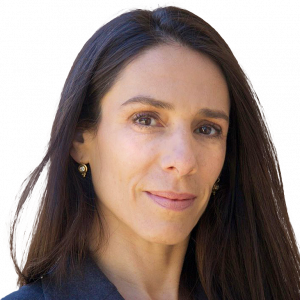 State Senator Doug Mastriano(R) recently romped to the GOP gubernatorial primary win in Pennsylvania. He opened his victory remarks by evoking Scripture, saying “God uses the foolish to confound the wise.” He then went on to cast the November election in vivid religious terms with another biblical reference ‘Let’s choose this day to serve the Lord.” And this is Pennsylvania, hardly the Bible Belt. Rep. Marjorie Taylor Greene has been speaking in these religious terms for some time, as has Ohio Republican candidate for the Senate, J.D. Vance, more recently as he proclaims his desire to smite pornography. Christian nationalism seeks to champion a fusion of American and Christian values, symbols and identity. Wait a minute, what happened to the establishment clause, that portion of the First Amendment that prevents the government from favoring one religion over another? I’m sure the same people say that they are strict Constitutional constructionists. Joining us today is Katherine Stewart, author of ‘The Power Worshipers: Inside the Dangerous Rise of Religious Nationalism.” Hold on for a freewheeling discussion of something once limited to the extremes of our politics that is
State Senator Doug Mastriano(R) recently romped to the GOP gubernatorial primary win in Pennsylvania. He opened his victory remarks by evoking Scripture, saying “God uses the foolish to confound the wise.” He then went on to cast the November election in vivid religious terms with another biblical reference ‘Let’s choose this day to serve the Lord.” And this is Pennsylvania, hardly the Bible Belt. Rep. Marjorie Taylor Greene has been speaking in these religious terms for some time, as has Ohio Republican candidate for the Senate, J.D. Vance, more recently as he proclaims his desire to smite pornography. Christian nationalism seeks to champion a fusion of American and Christian values, symbols and identity. Wait a minute, what happened to the establishment clause, that portion of the First Amendment that prevents the government from favoring one religion over another? I’m sure the same people say that they are strict Constitutional constructionists. Joining us today is Katherine Stewart, author of ‘The Power Worshipers: Inside the Dangerous Rise of Religious Nationalism.” Hold on for a freewheeling discussion of something once limited to the extremes of our politics that is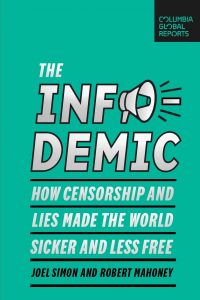 The most enduring legacy of COVID may be how governments around the world used it as cover to undermine freedom, subvert the flow of information and establish ways of avoiding accountability that will outlast the pandemic itself. The United States federal government tried to flood the zone with questionable theories about how to deal with the pandemic and when and how it would affect the nation. Never was there a robust effort to provide transparency and persuasion to lead us through a novel public health crisis by bringing us together as a society. Other democracies did a much better job of rallying their people to the sacrifices required and autocracies used techniques like China’s ‘just in time censorship’ and Russia’s more aggressive lock down of the political opposition in the name of public health. In the compelling new book, “The Infodemic: How Censorship and Lies Made the World Sicker and Less Free”, Joel Simon and our guest, Robert Mahoney, take us on an international journey exploring government communications practices in the face of this health emergency. Their book is part of the Columbia Global Reports project.
The most enduring legacy of COVID may be how governments around the world used it as cover to undermine freedom, subvert the flow of information and establish ways of avoiding accountability that will outlast the pandemic itself. The United States federal government tried to flood the zone with questionable theories about how to deal with the pandemic and when and how it would affect the nation. Never was there a robust effort to provide transparency and persuasion to lead us through a novel public health crisis by bringing us together as a society. Other democracies did a much better job of rallying their people to the sacrifices required and autocracies used techniques like China’s ‘just in time censorship’ and Russia’s more aggressive lock down of the political opposition in the name of public health. In the compelling new book, “The Infodemic: How Censorship and Lies Made the World Sicker and Less Free”, Joel Simon and our guest, Robert Mahoney, take us on an international journey exploring government communications practices in the face of this health emergency. Their book is part of the Columbia Global Reports project.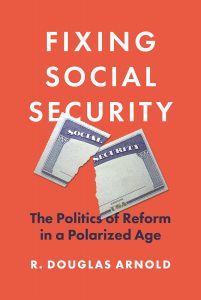 The future solvency of Social Security hangs in the balance by decisions that lawmakers in Washington will have to make over the next decade. While many of us might think that Social Security’s solvency is fungible–just move some pots around–that’s not how the system was set up. It’s pay as you go using only funds being contributed by current workers and that which has accumulated in the Social Security Trust Fund. Thanks to changes made 40 years ago on both the benefits and revenue side, the system has been in good shape for the last 40 years. However, given the long-living baby boom generation and the smaller group of American workers, the trust fund is expected to be depleted by 2034 and reliance only on current contributions will require a 21 percent cut to those enrolled in the program. R. Douglas Arnold, author of ‘Fixing Social Security: The Politics of Reform in a Polarized Age’ has a hard time imagining that a fix will not be found, thus avoiding the political wrath of 83 million recipients, but like many things in our nation’s capital it will be a compromise perhaps at the eleventh hour. It’s an important conversation on today’s podcast.
The future solvency of Social Security hangs in the balance by decisions that lawmakers in Washington will have to make over the next decade. While many of us might think that Social Security’s solvency is fungible–just move some pots around–that’s not how the system was set up. It’s pay as you go using only funds being contributed by current workers and that which has accumulated in the Social Security Trust Fund. Thanks to changes made 40 years ago on both the benefits and revenue side, the system has been in good shape for the last 40 years. However, given the long-living baby boom generation and the smaller group of American workers, the trust fund is expected to be depleted by 2034 and reliance only on current contributions will require a 21 percent cut to those enrolled in the program. R. Douglas Arnold, author of ‘Fixing Social Security: The Politics of Reform in a Polarized Age’ has a hard time imagining that a fix will not be found, thus avoiding the political wrath of 83 million recipients, but like many things in our nation’s capital it will be a compromise perhaps at the eleventh hour. It’s an important conversation on today’s podcast.